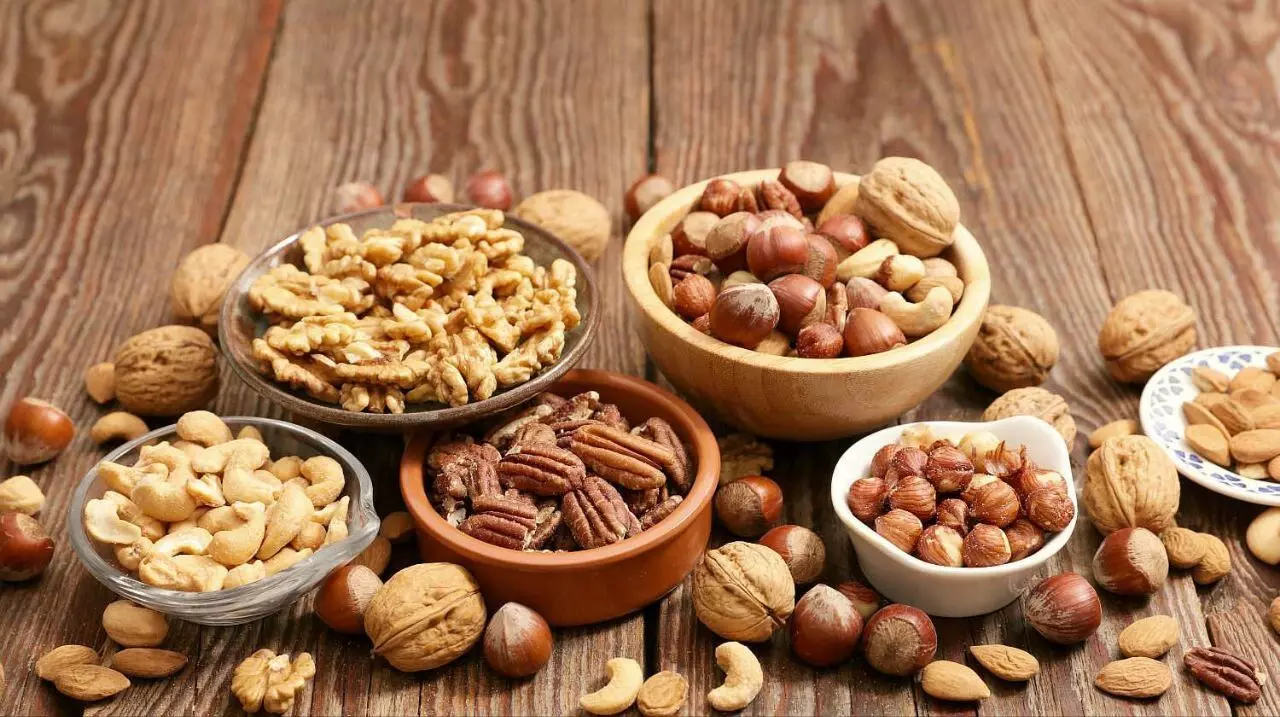How nuts and seeds can keep your heart healthy
Eating a handful of nuts, seeds (around 30 grams) daily, can help you reduce the risk of heart disease by 25%
By Sulogna Mehta
Representational Image
Hyderabad: Do you know, nuts and seeds are not just a healthy option but also an alternative to high-calorie junk foods? They also have many health benefits, especially reducing the risk of lifestyle diseases such as heart ailments, diabetes, and cognitive decline.
Research on nuts and heart health
As per a study published in the journal Food and Nutrition Research, eating a handful of nuts (around 30 grams) daily and seeds can help you reduce the risk of heart disease by 25%. The findings of the study showed that fatty acids in the nuts can lower blood cholesterol levels which help prevent the build-up of arterial fat and thereby lower the risk of cardiovascular disease.
Researchers from the Karolinska Institute in Sweden and the University of Oslo in Norway carried out a systematic review and meta-analysis of 60 studies. As per the researchers, almonds, pistachios, and walnuts appear to be the best for lowering cholesterol.
Speaking about the benefit of nuts, general physician Dr. Sandip Roy, founder of the Happiness India project and researcher on positive psychology, says, “Nuts contain monounsaturated fats, which lower total cholesterol and low-density lipoprotein (or bad) cholesterol levels in the blood. The beneficial effects of nuts can be explained by a variety of macronutrients, and micronutrients, including healthy fats, fiber, antioxidants, phytochemicals, and vitamin E. Vitamin E, protects cells from free radical damage, which helps to slow cognitive decline.”
Citing other research, the doctor says, “Eating peanuts and tree nuts twice a week, and walnuts once a week is linked to a 13% to 19% lower risk of total cardiovascular disease and a 15% to 23% lower risk of coronary heart disease. Regular consumption of nuts may be associated with a reduced risk of cognitive decline in older adults.
Eating 1 or 2 ounces of walnuts per day can improve cognitive performance and also lower the risk of other conditions such as cardiovascular disease, depression, and Type 2 diabetes, all of which are risk factors for the development of dementia.”
Eat in moderation
For individuals with existing diabetes and cardiac issues, the American Heart Association recommends eating a variety of nuts as part of a healthy diet. However, one has to be mindful of portion sizes as nuts are high in calories, says Anjali Dange, founder and executive director, Starlite Nutrition Centre.
“The general recommendation for nuts is to consume 1.5 ounces (or about a handful) per day. However, the amount and type of nuts recommended may vary depending on individual factors such as age, gender, body weight, and physical activity level. It’s best to consult with a registered dietitian to determine the appropriate amount and type of nuts to consume based on individual needs and always in moderation,” says the nutritionist.
Avoid nuts with additives
“It’s also important to be aware of added sugars, salt, and unhealthy fats that may be added to some nut products. Avoid nuts that are heavily salted, sweetened, or coated with sugary toppings. Also, it’s important to be mindful of portion sizes when consuming nuts as they are high in calories and overconsumption can lead to weight gain, which is a risk factor for diabetes and heart disease,” avers Anjali.
Healthy components in nuts and seeds
Healthy Fats: Seeds and nuts are high in unsaturated fats, which reduce levels of LDL (bad) cholesterol in the blood. High levels of LDL cholesterol are associated with an increased risk of heart disease.
Fibre: Seeds and nuts are good sources of dietary fiber, which can help to lower cholesterol levels and reduce the risk of heart disease. Fibre also helps to regulate blood sugar levels and promote satiety, which can help to prevent overeating and weight gain.
Antioxidants: Many seeds and nuts are rich in antioxidants, which help to protect against oxidative stress and inflammation in the body, which is a risk factor for the development of heart disease.
Magnesium: Nuts and seeds are a good source of magnesium, a mineral that plays a role in regulating blood pressure and supporting heart health.
Chia seeds: These are rich in fiber, Omega-3 fatty acids, and antioxidants.
One tablespoon a day:
Flaxseeds: These are high in fiber, omega-3 fatty acids, and lignans, which have been shown to reduce the risk of breast cancer and improve heart health. One teaspoon a day.
Almonds: These are high in monounsaturated fats, fiber, and vitamin E, which can help to improve cholesterol levels and reduce inflammation in the body. Around eight to10 almonds a day.
Walnuts: These are rich in omega-3 fatty acids, antioxidants, and fiber, which can help to improve heart health. Four walnuts a day.